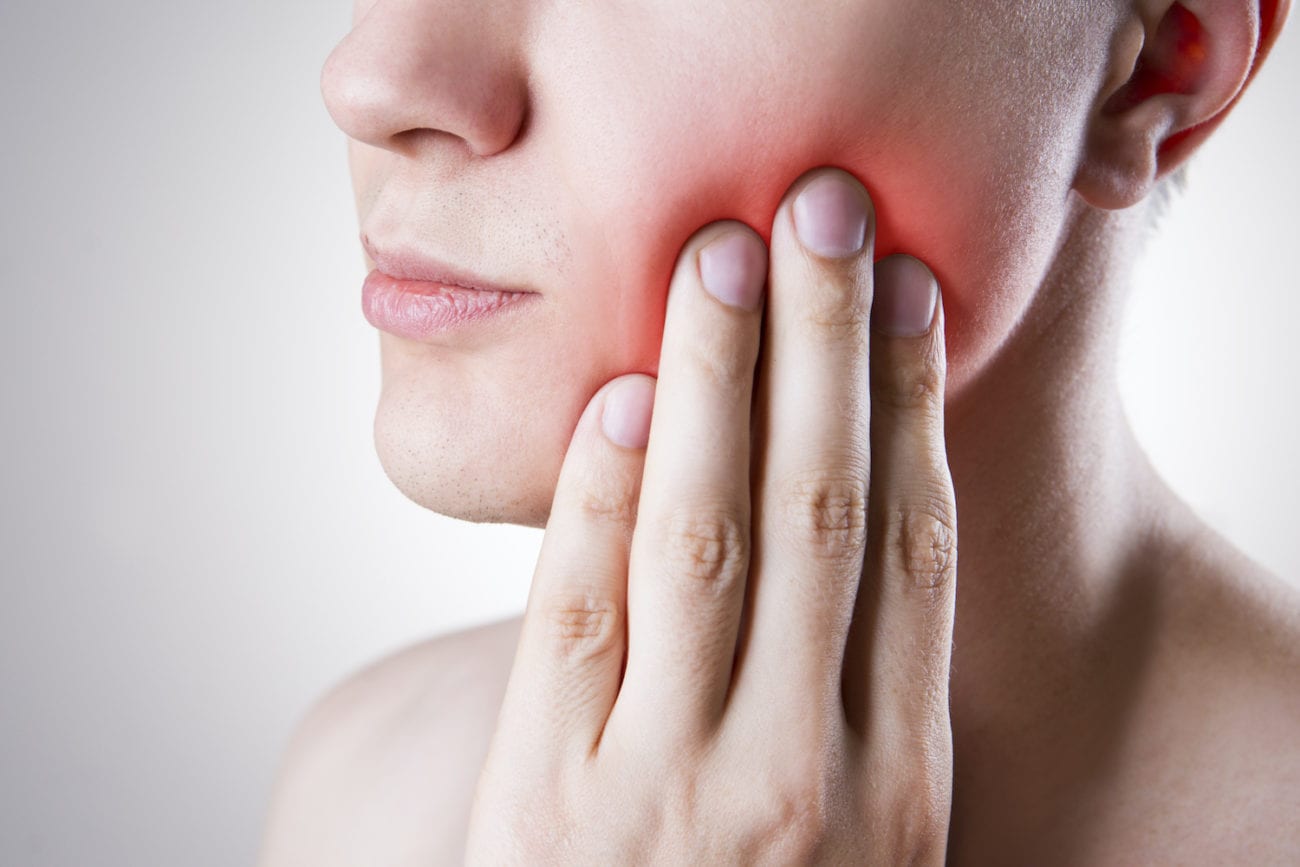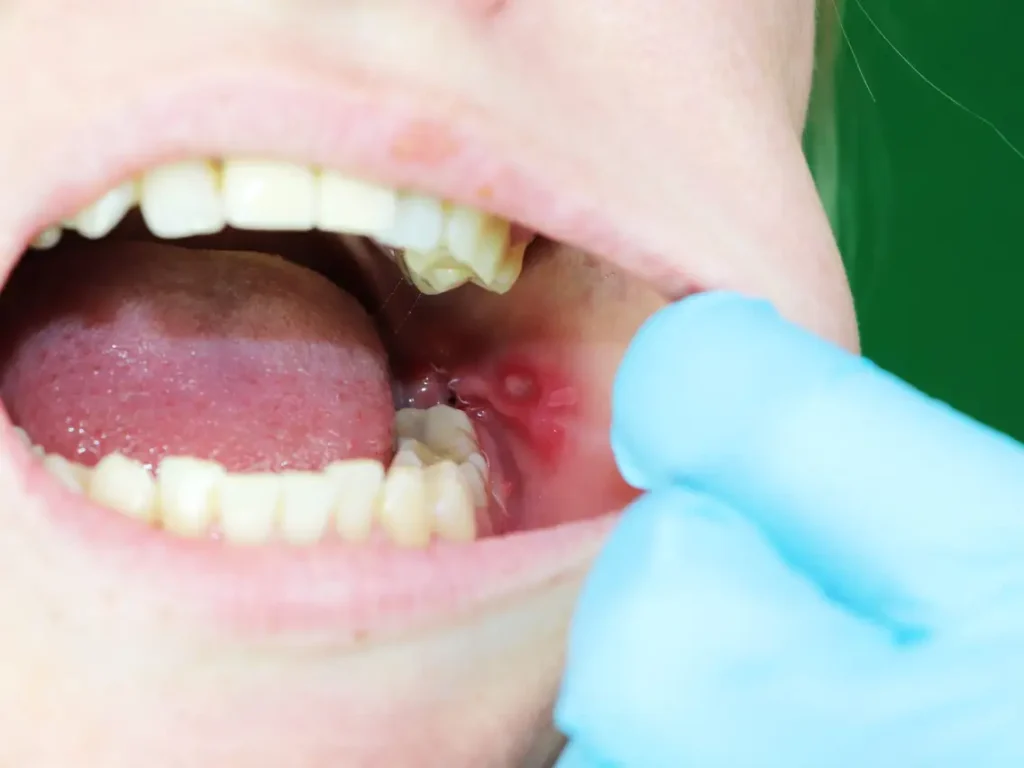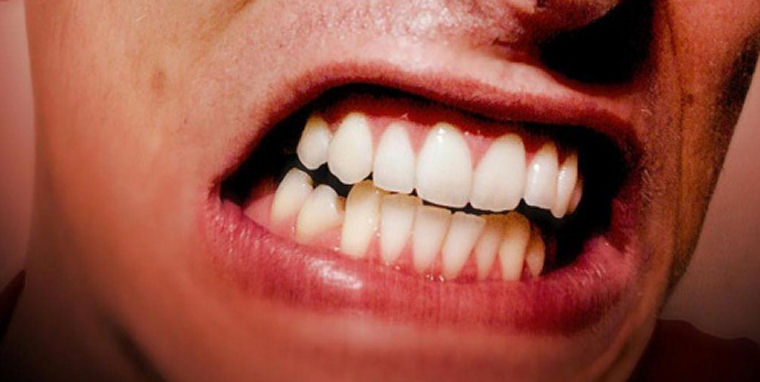Navigating the Impact of Stress on Oral Health:
Essential Insights and Management Tips
In today’s fast-paced world, stress is an inevitable part of life for many, impacting not just mental and physical health but also significantly affecting oral health. Stress can lead to a variety of dental issues, from minor concerns like mouth sores to more severe conditions such as gum disease and tooth erosion. This comprehensive guide aims to shed light on stress on oral health, providing actionable advice to mitigate these effects and maintain a healthy smile through life’s stressful periods.
The Impact of Stress on Oral Health
- Stress weakens the immune system and disrupts oral health.
- Stress can lead to gum disease, teeth grinding, dry mouth, and canker sores.
Stress on Oral Health: The Impact and How to Protect Yourself
- Reduce stress through yoga, meditation, or exercise.
- Practice excellent oral hygiene – brush, floss, and see your dentist regularly.
- Eat a healthy diet with anti-inflammatory foods.
- Talk to your dentist about stress and how it affects your mouth.
Additional Tips
- Use a mouthguard if you grind your teeth.
- Stay hydrated to combat dry mouth.
Understanding Stress-Related Oral Health Conditions

Stress can have profound effects on oral health, manifesting in several conditions that if left unchecked, can lead to long-term dental damage. Here’s a closer look at how stress impacts the mouth and strategies for prevention and management.
Stress on Oral Health: Gum Disease Risk Rise
Chronic stress not only weakens the immune system but also alters the body’s hormonal balance, which can contribute to inflammation in the gums, elevating the risk of periodontal infections. This complex interaction between stress, immune response, and oral bacteria creates an environment conducive to gum disease. Recognizing and addressing symptoms like gum swelling and bleeding early on is crucial for preventing the progression to more severe conditions, underscoring the direct impact of stress on oral health.
Recognizing Symptoms
The early signs of stress-related gum disease often mirror those of general gum infections but can be exacerbated by high stress levels. These include:
- Gum Sensitivity: Gums may feel tender or painful at the slightest touch.
- Bleeding During Brushing: Even gentle brushing can cause the gums to bleed, a sign of inflammation.
- Persistent Bad Breath: Stress can disrupt the balance of bacteria in the mouth, leading to persistent bad breath that doesn’t go away with regular brushing or mouthwash.
- Gum Recession: Prolonged stress can lead to more severe symptoms like gum recession, where the gums pull away from the teeth, exposing more of the tooth or the tooth’s root.
Preventative Measures to avoid Stress on Oral Health
Incorporating specific strategies into your oral health routine can significantly reduce the risk of developing stress-induced gum disease:
- Stress Management: Engaging in stress-reducing activities such as yoga, meditation, or exercise can lower the body’s stress response and its impact on oral health.
- Enhanced Oral Hygiene Practices: Upgrading your oral hygiene routine with the use of electric toothbrushes, interdental brushes, or water flossers can more effectively remove plaque and prevent gum disease.
- Dietary Adjustments: A diet rich in anti-inflammatory foods such as omega-3 fatty acids, found in fish, and antioxidants, found in fruits and vegetables, can support gum health.
- Regular Dental Check-ups: Bi-annual dental visits are essential for early detection and treatment of gum disease. These check-ups allow dental professionals to provide deep cleanings if necessary and to monitor any changes in your oral health closely.
- Open Communication with Your Dentist: Discussing your stress levels and any symptoms you’re experiencing with your dentist can help them tailor a more effective, preventative oral health strategy for you.
By understanding the link between stress and gum disease and taking proactive steps to manage stress and maintain oral hygiene, individuals can significantly mitigate their risk of developing serious periodontal issues. Remember, a holistic approach to managing stress and maintaining oral health is key to preventing the adverse effects of stress on your gums.
Bruxism: A Stress on Oral Health-Induced Habit
Stress is a common trigger for bruxism, the medical term for grinding your teeth and clenching your jaw. Many people may not even realize they’re doing it, especially if it occurs during sleep. Over time, bruxism can lead to tooth wear and breakage, sensitivity, and temporomandibular joint (TMJ) disorders, which affect the jaw joint and surrounding muscles.
Identifying Bruxism
Symptoms include jaw soreness or tightness, worn tooth enamel, increased tooth sensitivity, and headaches originating in the temples. You may also notice a grinding noise at night.
Managing Bruxism
A dentist can prescribe a custom-fitted mouthguard to protect your teeth during sleep. Stress management techniques and mindfulness practices can also reduce the frequency of bruxism.
Stress on Oral Health: Combating Dry Mouth
Stress affects the body’s ability to produce saliva, leading to a condition known as dry mouth (xerostomia). Saliva is crucial for neutralizing acids produced by bacteria, aiding in digestion, and preventing tooth decay and gum disease.
Combatting Dry Mouth
Increase your water intake, chew sugar-free gum to stimulate saliva production, and avoid tobacco and caffeine, which can worsen dry mouth. Special mouthwashes designed for dry mouth can also provide relief.
Canker Sores: Is Stress the Culprit?

Canker sores, or aphthous ulcers, are small, painful ulcers that appear inside the mouth. While their exact cause is unknown, stress is recognized as a significant trigger. These sores can make eating, drinking, and speaking uncomfortable.
Canker Sore Remedies
Most canker sores heal on their own within one to two weeks. Over-the-counter topical treatments can relieve pain, and avoiding spicy or acidic foods can prevent irritation. Stress management may also reduce the frequency of outbreaks.
Proactive Measures for Protecting Oral Health From Stress
Understanding the impact of stress on oral health is the first step toward prevention. By recognizing the signs of stress-related oral health issues and adopting effective management strategies, you can protect your oral health even during challenging times. Regular dental check-ups, a solid oral hygiene routine, and effective stress management techniques are key components of maintaining a healthy smile.
The intricate relationship between stress and oral health underscores the need for a holistic approach to health and wellness. By addressing stress, not only can you improve your oral health, but you can also enhance your overall quality of life.
Conclusion: Empowering Your Oral Health in the Face of Stress
The journey through understanding the profound impact of stress on oral health illuminates a critical aspect of wellness often overlooked in our fast-paced society. As we’ve navigated the various ways stress manifests in conditions such as gum disease, bruxism, dry mouth, and canker sores, it’s evident that the mouth serves as a mirror reflecting our overall health, including our mental well-being.
Addressing the intersection between stress and oral health is not merely about symptom management but about fostering a holistic approach to health that acknowledges the intricate connections between our mental state and physical health. By integrating stress management practices into our daily routines, prioritizing regular dental care, and maintaining open communication with dental professionals, we can proactively safeguard our oral health against the insidious effects of stress.
Furthermore, this exploration underscores the importance of awareness—recognizing the early signs of stress-related oral health issues and understanding that preventative measures, both in terms of oral hygiene and stress reduction, are within our grasp. It’s a call to action for individuals to embrace self-care strategies that not only target oral health specifically but also contribute to overall health and well-being.
In conclusion, managing the impact of stress on oral health is a multifaceted endeavor that requires awareness, proactive measures, and a commitment to holistic well-being. By acknowledging the link between stress and oral health and taking actionable steps to mitigate these effects, we empower ourselves to maintain not only a healthy smile but also a healthier, more balanced life. Remember, in the battle against stress and its effects on our bodies, knowledge is power, and action is the key to resilience.
 While exploring the nuanced ways in which stress can influence our oral health, it’s equally important to have access to a trusted dental care provider who understands these complexities. A&A Dental Clinic Vancouver, a leader in comprehensive dental care, offers a wide array of services designed to address and prevent the oral health issues discussed in our blog post. From preventative Dentistry to Dental Emergencies Vancouver. their experienced team is dedicated to supporting your dental health journey.
While exploring the nuanced ways in which stress can influence our oral health, it’s equally important to have access to a trusted dental care provider who understands these complexities. A&A Dental Clinic Vancouver, a leader in comprehensive dental care, offers a wide array of services designed to address and prevent the oral health issues discussed in our blog post. From preventative Dentistry to Dental Emergencies Vancouver. their experienced team is dedicated to supporting your dental health journey.
We invite you to visit the A&A Dental Clinic Vancouver to learn more about their commitment to patient care and how they can help you maintain a healthy smile, even in the face of stress.







